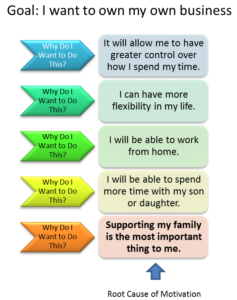Your staff are the most important asset to your business.
For my sales consultations, before I begin working with a client, I first establish expectations and goals – and whether I can help the client achieve those. If the expectations are unreasonable, budget too small or time constraints too looming I am upfront.
I usually dissect up what needs to be done and map out a more reasonable time-frame and/or budget. If the client is not flexible, I will intentionally disqualify my services – usually referring on to someone and/or an agency who might be better equip at achieving said goals, (one of my life philosophies is to always leave someone better off than when you first met them). However it is crucial, before any work or time spent, that the goals are mutually established and understood.
I believe the same approach should be adopted by employers prior to hiring. This will ensure your staff are the most important asset.
This is common-sense, but there are plenty of employers who don’t have frank conversations with their staff about their goals and whether you can help them get there.
Say you are a local brick and mortar business who hires a young-gun who has requested working 12 hour days for your business because he loves what you stand for and wants to up skill. You turn down his request because you only have resources for a 9-5 job and you don’t believe people should ‘take their work home‘. Do you think this will be a great hire? You can bet your ass he will be out of there at the next available opportunity.
How about instead, you ask what he wants, and allocate additional resources to help him achieve his goal of growing his digital marketing expertise through advertising your business on Adwords and Facebook? Assuming his goal of upskilling can directly help your business, you will be rewarded in loyalty and dedication. A symbiotic relationship where both parties benefit.
Now, that’s not to say you cater to each and every need your employees have, but you must recognise what path each of your staff want to go on. There should be a mutual relationship that goes beyond a salary (NB – some are purely motivated by money which is FINE – you know what will incentivise these types!). If your staff goals don’t align with your business, they should not be working for you.
By asking how you can help employees early-on you can identify their goals and whether they will be a perfect fit. This is how your staff become the most important asset.
Now some of you might be thinking – “Staff will just tell you what you want to hear”. This is a valid point. IMO the best way to determine how genuine an applicant is to ask ‘why’ until you are satisfied that they are disclosing their true desires/intentions. Just like determining the cause of a 20% fall in revenue on a particular day- you need to ask the ‘whys‘ the uncover the true cause. An example:
Why was there a 20% drop in revenue on Tuesday? Drop in conversion rate by 20%. Why did conversion rate drop by 20%? Landing page conversions dropped by 40%? Why? External search revealed competitors dropped price by 50%! Only by asking the whys will you uncover the truth and know each employees motivation. Is he motivated by money? Does he want flexible working hours? Is upskilling and career development his highest priority?

The 5 Whys Framework Can Be used to better understand employees motivation – Source – Buffer.com
No one benefits from an employee who does not align with an organisation, but by asking how you can help. By working together to achieve shared goals staff can be the most important asset… or your worst liability.
Related Articles
How Automating Tasks Preserves Willpower
Willpower or self-control is the ability to delay short-term gratification for long-term gain. It is what separates those who are 'successful' from those who are not. Research has shown that willpower is like a muscle - if you overwork it fatigues. This leaves you...
Hunger Beats Experience When Changing Careers
Experience when changing careers can be daunting at first. However if I had an option of choosing between working with an experienced, jaded, unmotivated person or an inexperienced, hungry, ‘plenty-to-prove’ person – the latter would win hands down. Sure, it might...
Generalist or Specialist?!
There's often been a debate about which path is best to pursue; the generalist who is adept, flexible and adaptable to the ever-changing digital landscape, or the dedicated specialist who has spent years, or decades honing her craft to a fine skill. Essentially it is...





